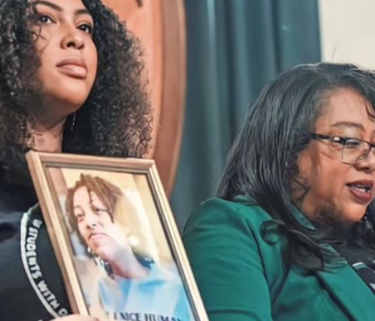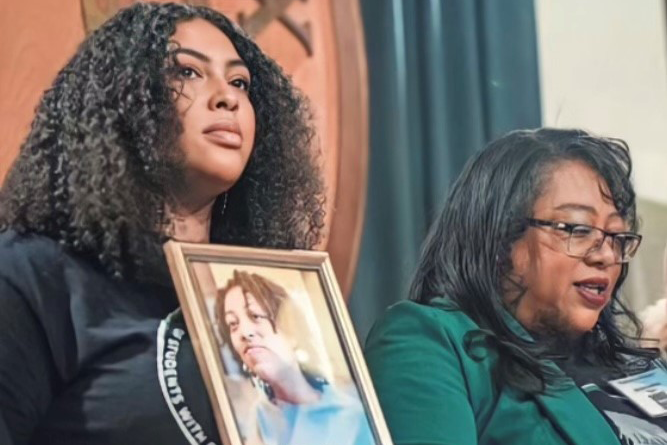When Julia Kennedy was born in 1982, The Arc had already been laying the groundwork for her to thrive.
Laura and Hal Kennedy were parents to two daughters, ages 3 and 4, when Julia arrived. Early on in her infancy, they knew that Julia was experiencing developmental delays. She eventually was diagnosed with profound intellectual disability and autism. Working with their pediatrician, the Kennedys sought out the help they would need to support Julia at every step, and they found their local chapter of The Arc, AHRC New York City.
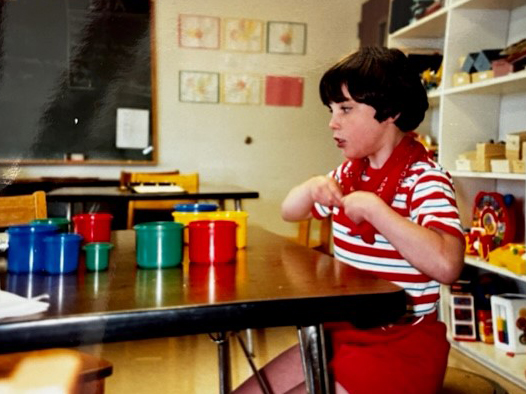 Julia started attending a pre-school run by United Cerebral Palsy, where they received a flyer for a family event hosted by AHRC New York City. The whole family spent a Saturday afternoon connecting with other parents, siblings, and children with disabilities.
Julia started attending a pre-school run by United Cerebral Palsy, where they received a flyer for a family event hosted by AHRC New York City. The whole family spent a Saturday afternoon connecting with other parents, siblings, and children with disabilities.
Laura shared: “It was like walking into the extended family that we all needed. It was the beginning of our now 40-year relationship with this incredible community of people.”
As Julia grew, and the Kennedys welcomed a fourth daughter, they began relying on The Arc for help with Julia’s schooling.
“I was learning about Julia’s rights and what environment could help her thrive. The team at AHRC New York City assured me that there was a continuum of services, and at the top, The Arc’s national office had gurus in special education policy fighting for systemic change. And before Julia was born, they had paved the way,” said Laura.
She added: “Very little existed 10 years before Julia arrived on the scene. I think that’s one of the most important things for people to keep in mind—The Arc’s national advocacy impacts people who are young and old, those who are not even born yet.”
The Kennedys were struggling to balance their four busy daughters’ needs. AHRC New York City helped them through respite care. Julia was very uncomfortable traveling, and so as the family took short trips, they gradually learned to trust other caregivers. Julia had invaluable experiences at overnight camp and staying at a respite home for a night or weekend, and Laura and Hal learned how to balance the risk and the opportunity.
“We needed that support to give time and attention to each child. And Julia needed to have different experiences in her life to grow. Between AHRC New York City’s programs, the wonderful staff we’ve worked with over the years, and the families we met through the chapter, we all benefited,” said Laura.
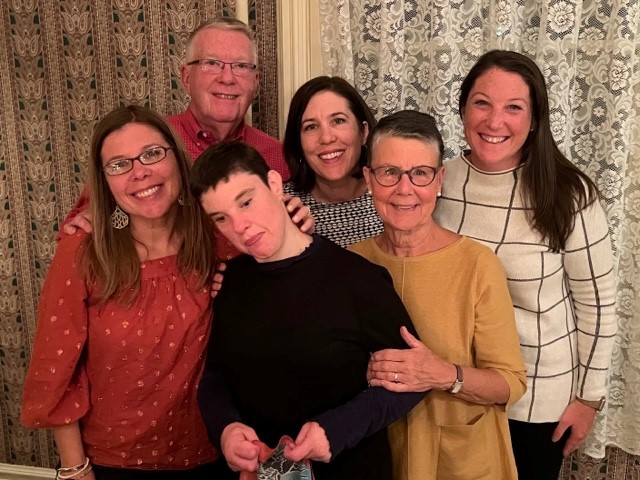
Soon, Laura started taking on leadership roles in her local and state chapters. In 1993, she joined the Board of Directors of AHRC New York City, representing her home borough of Staten Island. Laura was focused on helping the chapter be the go-to organization for families, supporting those recently receiving a disability diagnosis, and making the kind of connections that the Kennedy family had because of The Arc.
“In the mid-1990s, you still had some pediatricians telling families when they received a diagnosis, ‘Don’t take this on, for the sake of the rest of your family.’ Well, The Arc was there for families to show them that there was another way, and my family was living proof of what was possible,” said Laura.
“When I first learned about The Arc, I was drawn to the fact that family members make up the majority of the Board. That has a positive influence on how our chapters impact lives. There are other disability organizations that aren’t structured with that in mind, and so we are unique in our culture.”
As President of AHRC New York City’s Board, Laura worked with statewide advocates over two years to get the Governor to help families in disputes over their child’s special education services. They were successful in reversing the “burden of proof” in special education impartial hearings to place the burden on the school district, rather than on the parents.
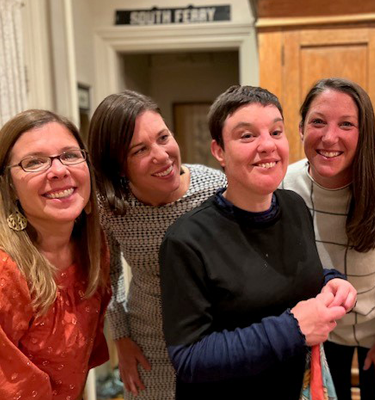
In 2004, Laura stepped up to a state-wide position on the Board of Governors of The Arc of New York, which was then called NYSARC. She spearheaded a successful membership campaign that doubled the membership of the organization. Laura started attending The Arc’s dynamic national events—the Disability Policy Seminar, where she lobbied in Congress, and the National Convention, where she made lifelong connections. While serving as NYSARC’s president, in 2017, Laura successfully led the organization to fully brand with The Arc of the US.
Today, Julia is 41 years old, lives 10 minutes from her parents, and enjoys life in the community. She likes her outings for shopping and seeing shows, volunteers with Meals on Wheels, and continuously works on her life skills. Meanwhile, Laura hasn’t stopped leading. On Staten Island, in New York City, and in Albany, Laura stays busy by chairing AHRC New York City’s advocacy committee. She is currently the chapter’s longest serving board member. And as our national Board President, Laura is keenly aware of those that will be impacted by The Arc in the coming years, focusing on the future power of the national federation.
“If not us, who? The Arc is the go-to organization for people across the country. So much of what was there for Julia existed because of The Arc—nationally and locally. We owe it to the next generation to be doing this work, all the time. What The Arc does is people work. It’s the best way to spend my time,” shared Laura. “We have much more work to do!”



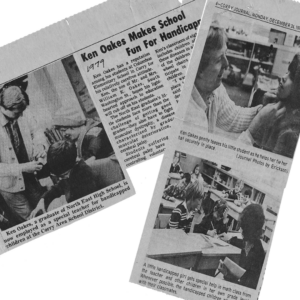
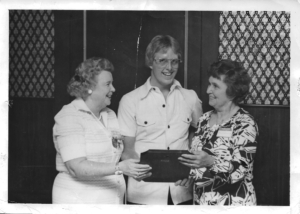 His impact on students didn’t stop in the classroom. After his career as a teacher, he went on to become the Special Education Director in Philadelphia and now teaches graduate school, supervises teachers, and was just appointed by the Governor to serve on Pennsylvania’s Special Education Advisory Panel. He also continued to volunteer with The Arc. “I think I did everything possible with The Arc.” In 2005, The Arc of Pennsylvania asked Ken to represent The Arc on the state’s Right to Education Task Force, which later led to his joining the Boards of The Arc of Philadelphia and The Arc of Pennsylvania, where he served as president of both organizations. He learned more and more about The Arc of the United States and was eager to get involved. He went to National Conventions, joined Committees, and eventually joined the national Board. “I went from organizing days at the zoo to becoming the national President—I was flabbergasted,” shares Ken.
His impact on students didn’t stop in the classroom. After his career as a teacher, he went on to become the Special Education Director in Philadelphia and now teaches graduate school, supervises teachers, and was just appointed by the Governor to serve on Pennsylvania’s Special Education Advisory Panel. He also continued to volunteer with The Arc. “I think I did everything possible with The Arc.” In 2005, The Arc of Pennsylvania asked Ken to represent The Arc on the state’s Right to Education Task Force, which later led to his joining the Boards of The Arc of Philadelphia and The Arc of Pennsylvania, where he served as president of both organizations. He learned more and more about The Arc of the United States and was eager to get involved. He went to National Conventions, joined Committees, and eventually joined the national Board. “I went from organizing days at the zoo to becoming the national President—I was flabbergasted,” shares Ken.
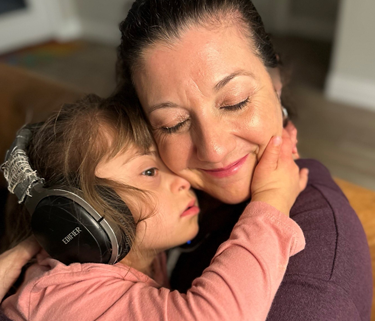
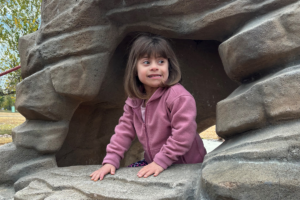
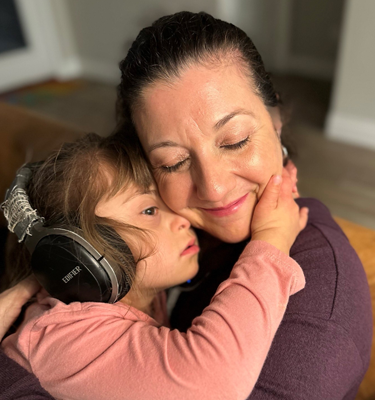

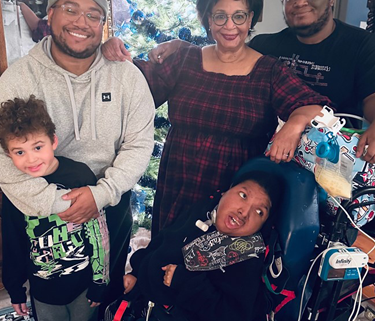
 Debbi’s son Josh was born eight weeks early with a grade four brain hemorrhage. As she shares, “He was one of the sickest babies in the neonatal intensive care unit. It started our roller coaster of a journey of having a child with complex medical needs and disabilities.”
Debbi’s son Josh was born eight weeks early with a grade four brain hemorrhage. As she shares, “He was one of the sickest babies in the neonatal intensive care unit. It started our roller coaster of a journey of having a child with complex medical needs and disabilities.”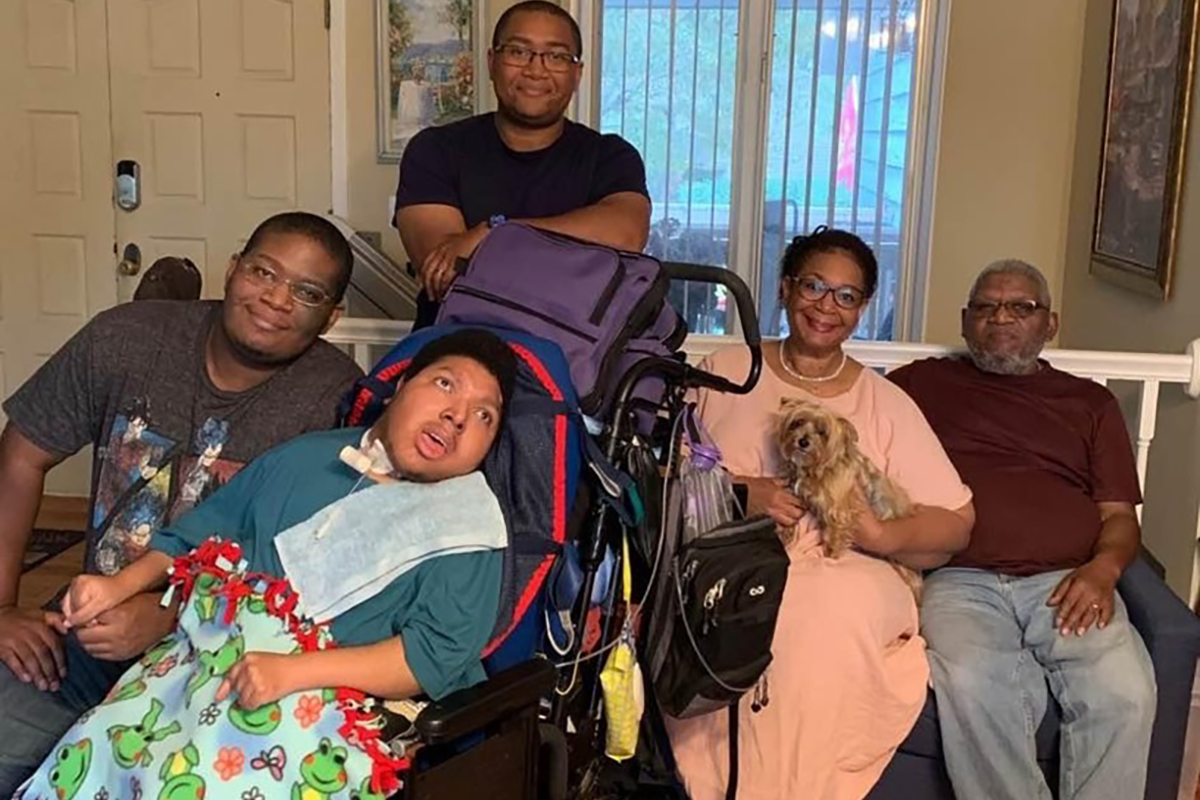 Out of crisis came purpose. Debbi soon immersed her family in The Arc’s chapter support systems, connecting her sons to sibling workshops and herself to a parent networking group. “We still count on those relationships for support today,” added Debbi.
Out of crisis came purpose. Debbi soon immersed her family in The Arc’s chapter support systems, connecting her sons to sibling workshops and herself to a parent networking group. “We still count on those relationships for support today,” added Debbi.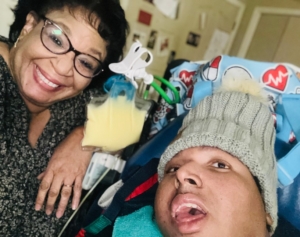 Once The Arc of the United States got word of Debbi’s powerhouse advocacy, we invited her to apply for the Board. Her proudest volunteer moments have been spearheading the creation of The Arc’s
Once The Arc of the United States got word of Debbi’s powerhouse advocacy, we invited her to apply for the Board. Her proudest volunteer moments have been spearheading the creation of The Arc’s 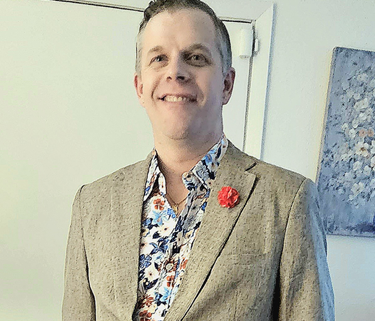
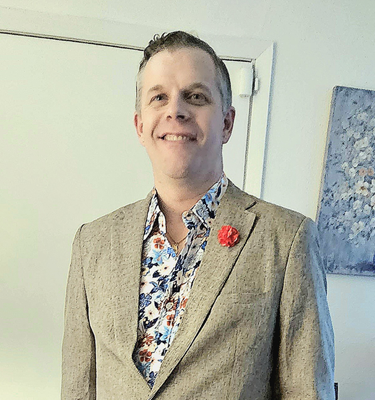 Working with people with disabilities is Lawrence’s long-time passion. He has worked as a direct support professional (DSP) in New York and Texas, both before and after serving in the Army. As a DSP, Lawrence takes pride in the trusted role he has in the lives of people with disabilities. He helps transport people to and from appointments, gives medicine, cooks, cleans, dresses, changes, and feeds people who may not be able to do these things for themselves. He even seeks out specialized training that is needed to support people who have challenging behaviors that may result in injury to themselves and others.
Working with people with disabilities is Lawrence’s long-time passion. He has worked as a direct support professional (DSP) in New York and Texas, both before and after serving in the Army. As a DSP, Lawrence takes pride in the trusted role he has in the lives of people with disabilities. He helps transport people to and from appointments, gives medicine, cooks, cleans, dresses, changes, and feeds people who may not be able to do these things for themselves. He even seeks out specialized training that is needed to support people who have challenging behaviors that may result in injury to themselves and others.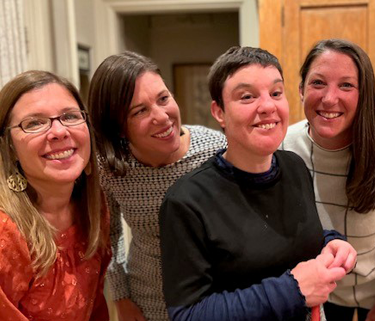
 Julia started attending a pre-school run by United Cerebral Palsy, where they received a flyer for a family event hosted by AHRC New York City. The whole family spent a Saturday afternoon connecting with other parents, siblings, and children with disabilities.
Julia started attending a pre-school run by United Cerebral Palsy, where they received a flyer for a family event hosted by AHRC New York City. The whole family spent a Saturday afternoon connecting with other parents, siblings, and children with disabilities.


